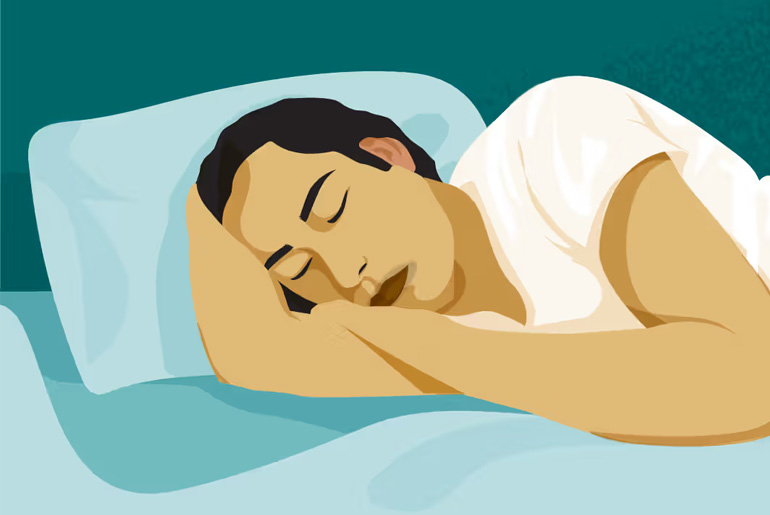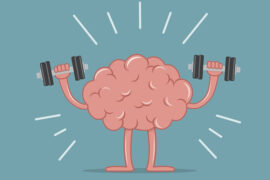Struggling to get the recommended seven to nine hours of sleep each night? You’re not alone. Many individuals face challenges in achieving restful sleep, often due to factors like stress, anxiety, and societal pressure to prioritize productivity over rest. However, there are simple tricks recommended by sleep experts to help improve your sleep quality. It’s essential to prioritize understanding your body’s needs and making sleep a priority rather than viewing it as something leftover at the end of the day. By incorporating strategies tailored to your individual needs, such as establishing a consistent bedtime routine, creating a comfortable sleep environment, and practicing relaxation techniques, you can enhance your ability to achieve restorative sleep and support overall well-being.
Avoid falling for online fads or unproven methods to improve your sleep. Instead, rely on simple tricks recommended by sleep experts. While it’s tempting to try the latest trends or gimmicks, they may not be backed by scientific evidence and could potentially disrupt your sleep patterns further. Opt for tried-and-tested strategies endorsed by experts, such as establishing a consistent sleep schedule, creating a relaxing bedtime routine, ensuring a comfortable sleep environment, limiting screen time before bed, practicing relaxation techniques like deep breathing or meditation, and avoiding caffeine and heavy meals close to bedtime. By prioritizing evidence-based approaches, you can improve your chances of achieving restful and rejuvenating sleep consistently.
Establishing a Buffer Zone:
Establishing a buffer zone between the end of your workday and bedtime can be instrumental in managing work-related stress and promoting better sleep. Experts recommend allocating at least an hour before bed to disconnect from career obligations and daily responsibilities. Avoid activities like checking email, paying bills, or engaging in chores, as well as excessive scrolling through social media. Instead, cultivate a routine focused on relaxation and mindfulness. Engage in activities like reading a book, pursuing a hobby, or spending quality time with loved ones. Dr. Annise Wilson, an assistant professor of neurology and medicine at Baylor University, emphasizes the importance of mindfulness in this practice. Anything that helps center you and release tension from the day can contribute to promoting restful sleep. By prioritizing activities that foster relaxation and mental rejuvenation, you can create a conducive environment for a peaceful night’s rest.
Mindful Eating:
Monitoring your food intake before bedtime can significantly affect your sleep quality. Consuming a large meal shortly before bed can disrupt sleep patterns, as it imposes a heavy workload on your body when it should be winding down. Instead, aim to have your main meal earlier in the evening to allow ample time for digestion. However, going to bed excessively hungry isn’t ideal either. Opt for light snacks containing protein or healthy fats, such as cheese, almonds, or peanut butter on whole grain bread. These options provide sustained energy and can help prevent hunger pangs during the night without overburdening your digestive system. By being mindful of your eating habits and making nutritious choices, you can support better sleep and overall well-being.
Cutting Out Caffeine and Alcohol:
Avoiding caffeine and alcohol in the hours leading up to bedtime is essential for promoting restful sleep. While a nightcap or a post-dinner espresso may seem relaxing initially, they can ultimately disrupt your sleep cycle and diminish sleep quality. Alcohol may help you fall asleep faster, but it often leads to fragmented sleep patterns, increasing the likelihood of waking up throughout the night. Caffeine, a potent stimulant, inhibits the production of adenosine, a neurotransmitter that promotes sleepiness, and its effects can linger in your system for up to 10 hours. To optimize your chances of a good night’s sleep, experts recommend refraining from consuming caffeinated or alcoholic beverages several hours before bedtime. By making this adjustment, you can support your body’s natural sleep-wake cycle and enjoy more restorative sleep.
Benefits of Limiting Screen Time:
The light emitted from phones and computer screens can disrupt the body’s natural sleep-wake cycle, known as the circadian rhythm, by suppressing the production of melatonin, a hormone that regulates sleep. Dr. Dianne Augelli, an assistant professor of clinical medicine at Weill Cornell Medical College, highlights the importance of self-discipline in managing screen time before bed. While platforms like TikTok may encourage continuous scrolling, it’s essential to prioritize your well-being by establishing boundaries and learning to disconnect from electronic devices. By cultivating habits that limit screen exposure before bedtime, such as setting a designated “screen-free” period or using blue light filters, you can promote better sleep hygiene and improve the quality of your rest. Ultimately, taking control of your screen habits is crucial for nurturing a healthy sleep routine and overall wellness.
Consult Your Doctor:
If you’ve been experiencing persistent difficulties with sleep for more than a month and traditional strategies haven’t been effective, it’s crucial to seek guidance from a healthcare professional. This is particularly important if sleep disturbances are impacting your work performance or overall mood. According to experts like Atwood, prolonged sleep issues may require medical attention, as they could be indicative of underlying stressors or health conditions that need addressing. Consulting with a doctor can help identify the root causes of your sleep difficulties and develop a personalized plan for managing them. Whether it involves addressing stressors, underlying health concerns, or exploring therapeutic interventions, seeking professional guidance can be instrumental in restoring restful sleep and improving overall well-being.
Disclaimer:
The information contained in this article is for educational and informational purposes only and is not intended as a health advice. We would ask you to consult a qualified professional or medical expert to gain additional knowledge before you choose to consume any product or perform any exercise.







